
On 19 November 2024, a member of the Executive Council for Education in the North West Province, Viola Motsumi, convened a strategic meeting with senior management of the North West Department of Education and representatives from Unisa, led by the President of Unisa’s Convocation, Justice Dabampe, to explore an innovative partnership focused on piloting groundbreaking career guidance programmes designed to empower learners to make informed career choices as early as Grade 9.
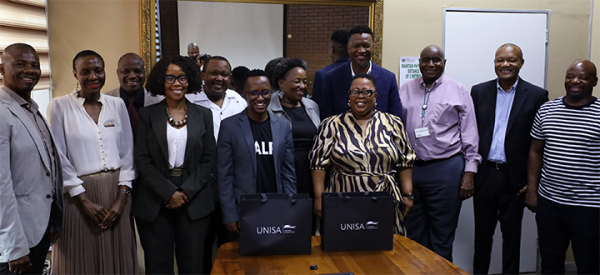
Unisans from the university’s Midlands Region and Internationalisation and Partnerships Directorate, together with North West Department of Education dignitaries
The proposed programme is part of the university’s broader strategy to enhance career readiness among learners in the future to align learners’ talents, interests and aspirations with future career opportunities well before reaching Grade 12.
Additionally, the programme will support the department’s goal of integrating career guidance into the Life Sciences curriculum through a collaborative approach.
Motsumi expressed her optimism about the initiative, asserting that this partnership is a step forward in shaping the futures of the country’s learners by giving them the tools and support they need to make well-informed career decisions. She expressed the hope that these engagements will bear fruit in a way that will address career-readiness challenges and strengthen the country’s education system.
Furthermore, Motsumi stated that her department and Unisa remain committed to fostering innovative collaborations that align with the province’s education priorities, and prepare learners for the demands of the modern workforce.
Dabampe underscored the significance of this meeting, stating that it forms part of the university’s strategic vision in taking the university to the people, adding: "This is to ensure that the learners in various schools within the province are supported. This partnership intends to bring the university’s representatives to support local schools, in ensuring that their dreams towards accessing higher education are practically feasible."
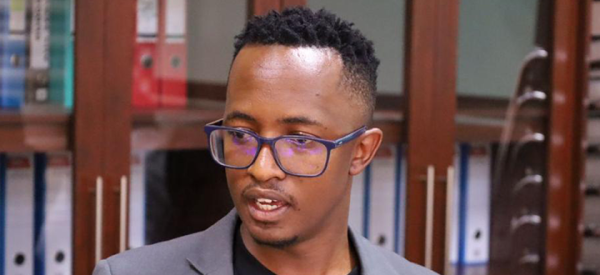
President of Unisa’s Convocation, Justice Dabampe, in a discussion
Unisa Midlands Regional Director, Matthews Kokong, stated that the partnership will enable the region to collaborate on various aspects and areas that will enable the university to deliver services to students, and also on community engagement projects that can lead to research initiatives within the province.
Mmatswele Bopape, Deputy Director: Academic and Technology Support, Midlands Region, said one of the suggested areas for this collaboration is to adopt a school to assist those learners from as early as Grade 7 with the multiple skills necessary to transition into the higher education field.
"This," she said, "will comprise computer literacy skills – our analysis in the province showed that students who transition into higher education have underdeveloped skills and limited knowledge about which career path to undertake, and are unaware of the plethora of bursary offers from both public and private organisations."
Bopape continued: "In some instances, their culture of reading and writing is not firmly inculcated, causing learners to struggle with these skills – especially academic writing. Some struggle with the language of teaching and learning, and in some instances rely on third-hand and often misdirecting information on when to apply or register at Unisa."
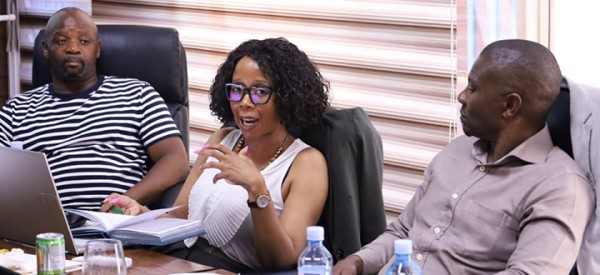
Mmatswele Bopape (centre) taking part in a dialogue
Through using this approach, Bopape hopes that by the time they reach Grade 9 where they have to make subject choices, the learners will choose careers that aligned with their interests, abilities and skills, that they will consider subject choices in the STEM (science, technology, economics, and mathematics) fields, and they will explore career choices available in the university’s catalytic niche areas.
Mildred Qelesile, Midlands Regional Office Coordinator, added that there is a dire need for integrating information and communication technology (ICT) skills, particularly in the rural parts of the province. She continued: "We have identified areas in which the university can add exceptional value through adopting a school, capacitating the learners with ICT skills, and tracking their progress until they are ready for higher education learning."
Going forward, the university’s Midlands Region will continue with strategic meetings to discuss the best outcomes for the province’s learners’ success envisioned by both the university and the department.
By prioritising the preparedness of learners for the 21st century demands of higher education and the workforce, the North West Department of Education and Unisa remain committed to fostering innovative collaborations that align with the province’s vision for education.
* By Godfrey Madibane, Acting Journalist, Department of Institutional Advancement, with additional reporting by the North West Department of Education
Publish date: 2024/11/22
 Unisa celebrates a project of hope, dignity and student success
Unisa celebrates a project of hope, dignity and student success
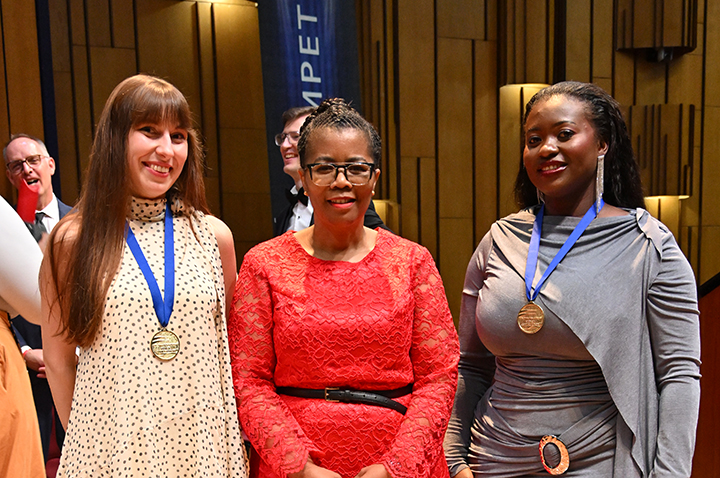 Women vocalists take top honours at Unisa's globally renowned showcase
Women vocalists take top honours at Unisa's globally renowned showcase
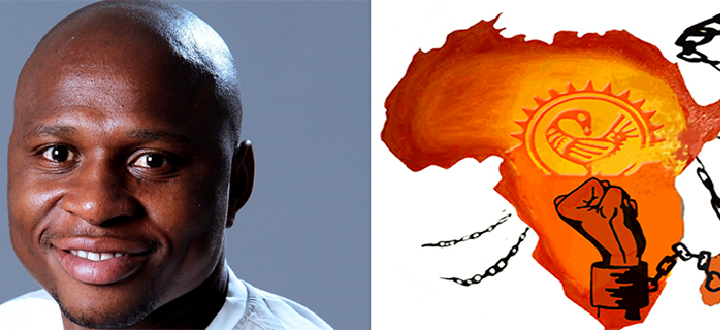 African wealth is dependent on investment in education and development
African wealth is dependent on investment in education and development
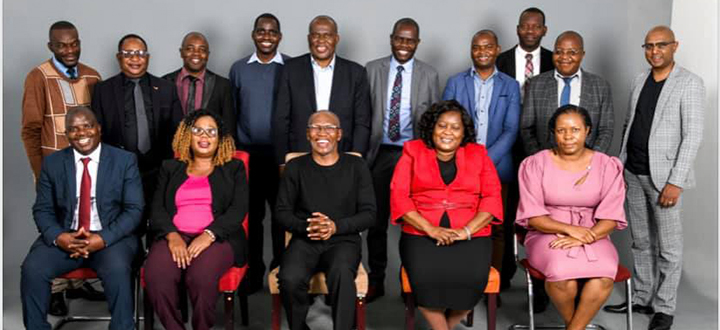 Unisa celebrates matric result success at Correctional Services ceremony
Unisa celebrates matric result success at Correctional Services ceremony
 Unisa ICT Director recognised among acclaimed IT leaders
Unisa ICT Director recognised among acclaimed IT leaders